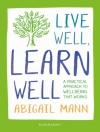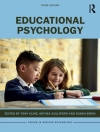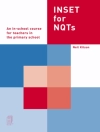Available open access digitally under CC BY-NC-ND licence.
‘Desistance’ – understanding how people move away from offending – has become a significant policy focus in recent years, with desistance thinking transplanted from the adult to the youth justice system in England and Wales. This book is the first to critique this approach to justice-involved children, many of whom are yet to fully develop an identity (criminal or otherwise) from which to ‘desist’.
Featuring voices from academia, policy and practice, this book explores practical approaches to desistance with children in the ‘Child First’ context. It gives new insights into how children can be supported to move away from offending and proposes reforms to make a meaningful difference to children’s lives.
Daftar Isi
Foreword – Fergus Mc Neill
1. Desistance and Children: Setting the Scene – Alexandra Wigzell, Claire Paterson-Young and Tim Bateman
PART 1: Theoretical and Conceptual Perspectives on Desistance and Children
2. ‘Child First’ and Desistance – Neal Hazel and Stephen Case
3. Child Time, Adult Time, Fugitivity and Desistance – Diana Johns
4. Should Desistance Thinking Be Applied to Children in the Criminal Justice System? – Ross Little and Kevin Haines
PART 2: The Socio-Strutural Dimensions of Desistance
5. Young Women and Punishment Within and Beyond the Penal System – Gilly Sharpe
6. Supporting Girls in Care To Desist From Offending Behaviour – Jo Staines, Julie Shaw, Katie Hunter and Claire Fitzpatrick
7. Black and Mixed Heritage Boys: Desistance Through a Co-Creative Critical Race and Post-Colonial Lens – John Wainwright
8. Growing in Maturity, Growing in Faith, Growing Out of Crime: The Role of Children’s and Young People’s Faith in Desistance – Tim Rosier
PART 3: The Application of Desistance Thinking to Children
9. Desistance Approaches in Youth Justice – Conceptualisations, Barriers and Enablers – Kathy Hampson
10. Summer Arts Colleges: Using the Arts To Promote Educational Engagement and Desistance – Martin Stephenson
11. Desistance Through Participatory Practice: Involving Children in Decision-Making Processes in Youth Justice – Sean Creaney, Samantha Burns, Anne-Marie Douglas, Andrew Brierley, and Colin Falconer
12. Relationship-Based Work With Children in the Youth Justice System – Roberta Evans and Kirstine Szifris
13. Through a Youth Justice Practitioner’s Lens – Would a Sentencing Alternative to the Criminal Conviction Be a Small Change With a Big Impact on Children’s Desistance? – Steven Carr
14. Innovative and Theoretically Informed Intervention Programmes for Children Who Offend: The Compass Project – Neema Trivedi-Bateman
15. What Next for Desistance and Youth Justice? – Alexandra Wigzell, Claire Paterson-Young and Tim Bateman
Tentang Penulis
Kirstine Szifris is Senior Research Associate at the Policy Evaluation and Research Unit, Manchester Metropolitan University. Before moving into academia, she worked as a teacher hosting philosophy clubs during lunchtimes and after school clubs. She has a Ph D from Cambridge University which takes a humanistic approach in placing the prisoner’s voice at the heart of the research.












